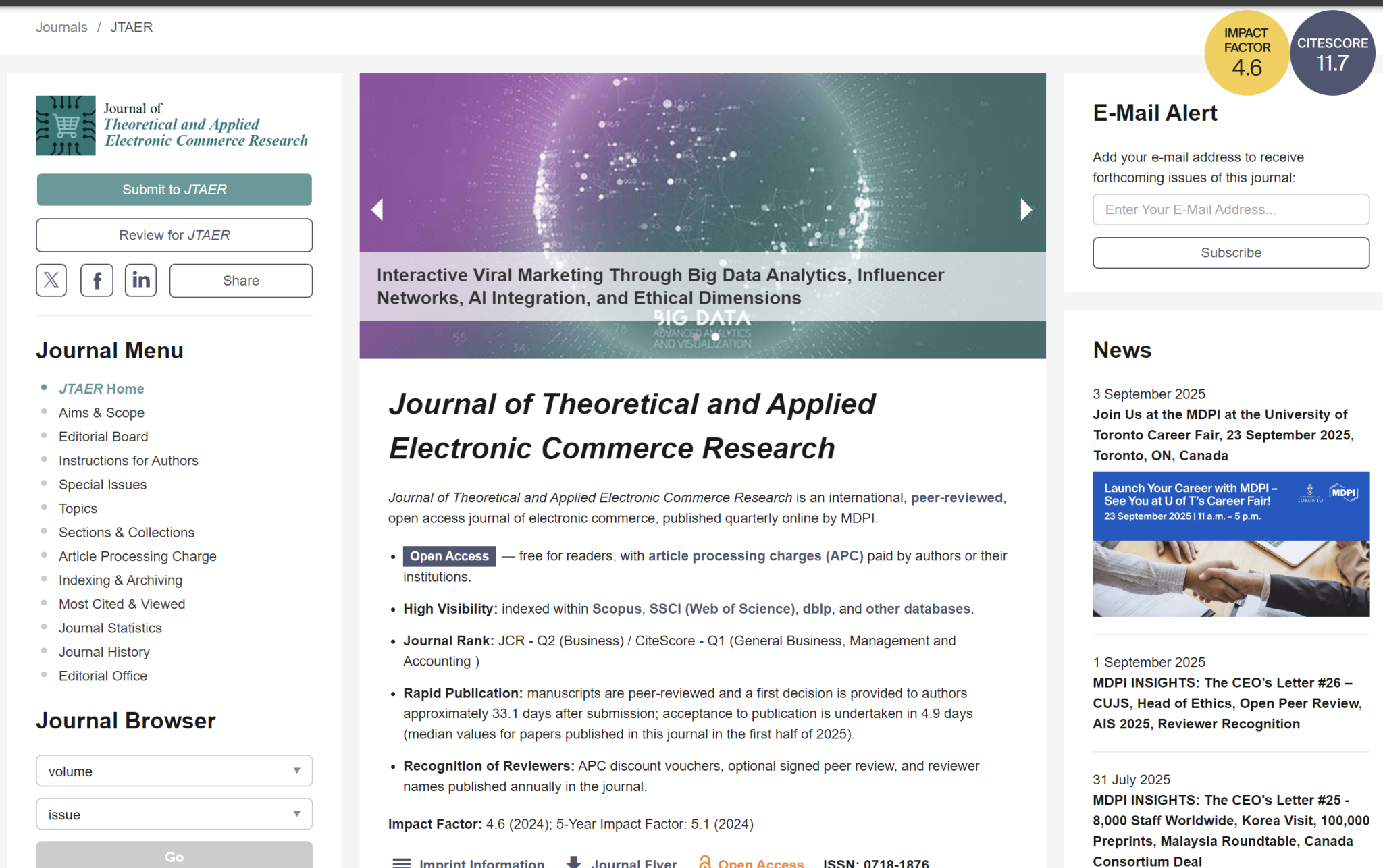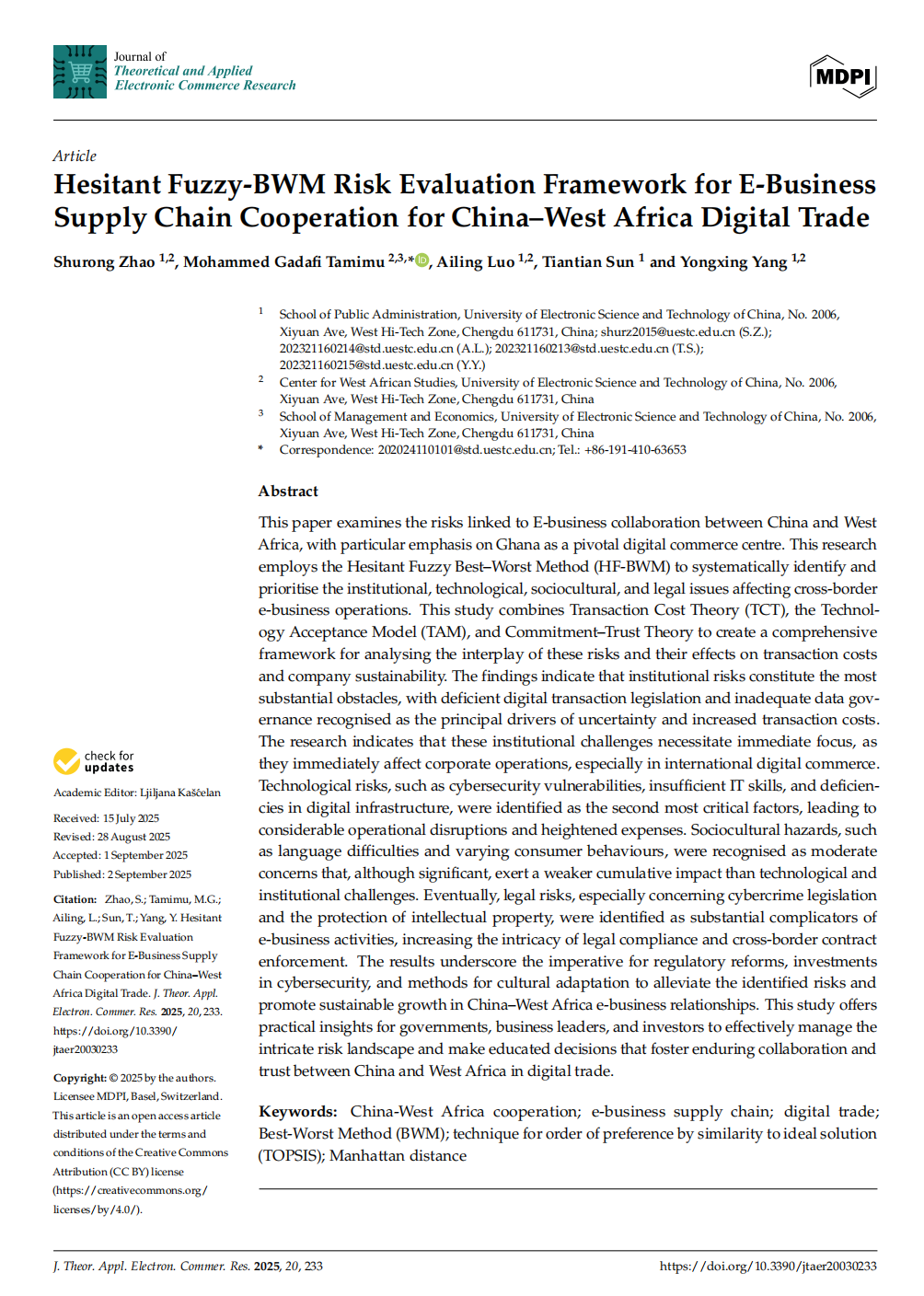

Title:Hesitant Fuzzy-BWM Risk Evaluation Framework for E-Business Supply Chain Cooperation for China–West Africa Digital Trade
IF: 4.6 (2024) SSCIQ1
DOI: https://doi.org/10.3390/jtaer20030233
See the link for the full text:https://doi.org/10.3390/jtaer20030233
Abstract
This paper examines the risks linked to E-business collaboration between China and West Africa, with particular emphasis on Ghana as a pivotal digital commerce centre. This research employs the Hesitant Fuzzy Best-Worst Method (HF-BWM) to systematically identify and prioritise the institutional, technological, sociocultural, and legal issues affecting cross-border e-business operations. This study combines Transaction Cost Theory (TCT), the Technology Acceptance Model (TAM), and Commitment - Trust Theory to create a comprehensive framework for analysing the interplay of these risks and their effects on transaction costs and company sustainability. The findings indicate that institutional risks constitute the most substantial obstacles, with deficient digital transaction legislation and inadequate data governance recognised as the principal drivers of uncertainty and increased transaction costs. The research indicates that these institutional challenges necessitate immediate focus, as they immediately affect corporate operations, especially in international digital commerce. Technological risks, such as cybersecurity vulnerabilities, insufficient IT skills, and deficiencies in digital infrastructure, were identified as the second most critical factors, leading to considerable operational disruptions and heightened expenses. Sociocultural hazards, such as language difficulties and varying consumer behaviours, were recognised as moderate concerns that, although significant, exert a weaker cumulative impact than technological and institutional challenges. Eventually, legal risks, especially concerning cybercrime legislation and the protection of intellectual property, were identified as substantial complicators of e - business activities, increasing the intricacy of legal compliance and cross - border contract enforcement. The results underscore the imperative for regulatory reforms, investments in cybersecurity, and methods for cultural adaptation to alleviate the identified risks and promote sustainable growth in China–West Africa e - business relationships. This study offers practical insights for governments, business leaders, and investors to effectively manage the intricate risk landscape and make educated decisions that foster enduring collaboration and trust between China and West Africa in digital trade.
Keywords
China-West Africa cooperation; e-business supply chain; digital trade; Best-Worst Method (BWM); technique for order of preference by similarity to ideal solution (TOPSIS); Manhattan distance
This paper was completed by Mohammed Gadafi Tamimu under the guidance of Professor Zhao Shurong . It has been included in the Journal of Theoretical and Applied Electronic Commerce Research ( ISSN: 0718-1876).This work was supported by Regional Studies of the Ministry of Education of China (No. 2024-N01).